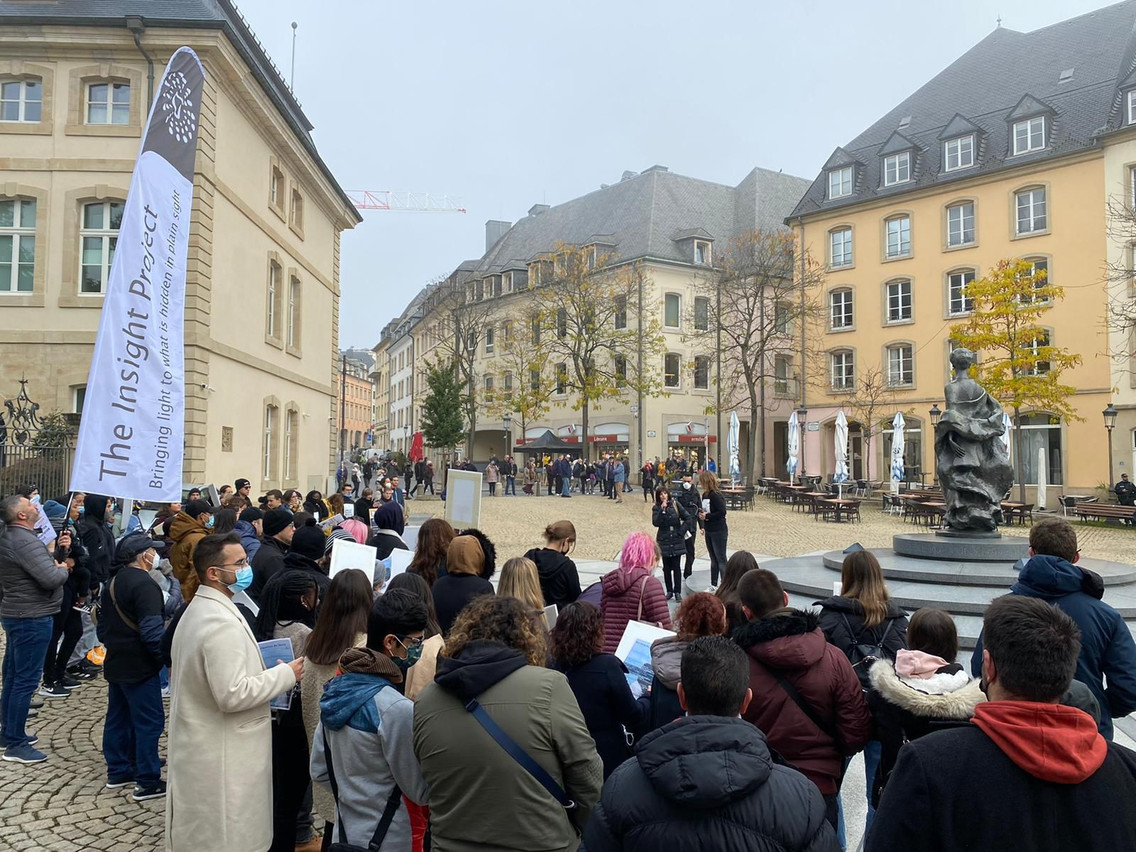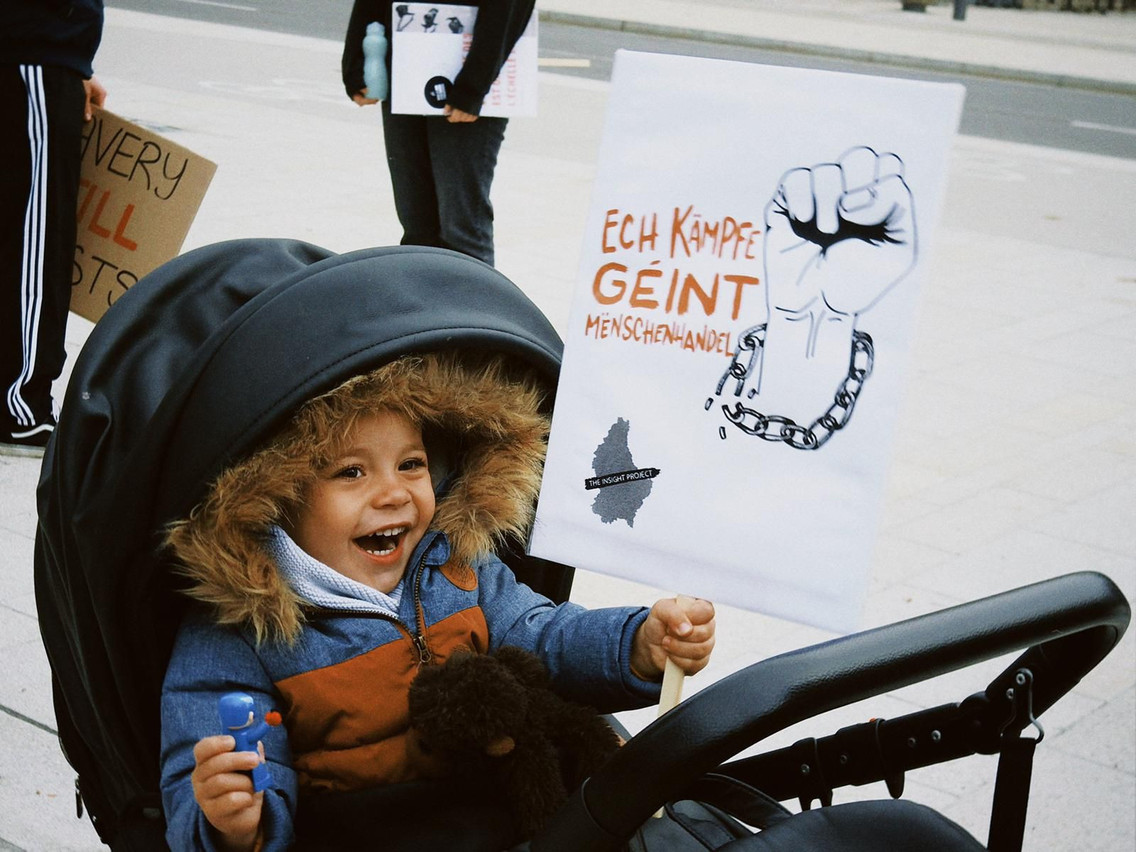The United Nations World Day against Trafficking in Persons will draw global attention to the abuse of technological tools and digital platforms by traffickers to expand their criminal operations. Traffickers leverage on the covid-induced boom in cyber-interactions and the vulnerability of persons in situations of war or other desperate contexts.
Lawyer and executive director of The Insight Project Luxembourg, Marta Ventura Correia, explains that while technology can be exploited by criminals to recruit and organise trafficking operations at an alarming pace, it can also be leveraged to track traffickers down and mitigate the risks. As part of its advocacy campaigns against human trafficking and other kinds of exploitations, the organisation will be hosting an awareness raising event to build community engagement in detecting and reporting trafficking cases.
Social media is not only used for sexual exploitation but also to obtain child sexual abuse material, reinforce cyberbullying or blackmail that can lead to depression and suicide.
It will also educate the public on practical ways to protect themselves online---either by updating privacy options, withholding personal information on public platforms or disabling location options, for example.
“Social media is not only used for sexual exploitation but also to obtain child sexual abuse material, reinforce cyberbullying or blackmail that can lead to depression and suicide. And as we know, Luxembourg has one of the highest rates of suicide amongst teenagers in Europe,” notes Correia.
Besides social media, online predators are increasingly building a presence on gaming platforms, where they manipulate unsuspecting younger audiences to exchange explicit material for “gifts”, Correia explains, stressing the need to keep both preventive and protective measures alive to deter exploitation. After all, “the internet never forgets” and tracking down content can prove difficult.
“Even if we say it has been ‘erased’, nothing on the internet is ever really erased because someone has already made a copy or taken a screenshot,” says Correia.
The risk of abuse and trafficking of Ukrainians is also a matter of concern for the NGO. “Unfortunately, some people will try to abuse those in their care for their own benefit and profit. This is where we also must continue to raise awareness and prevention efforts so that they are not forgotten and so that someone can be on the lookout for their circumstances and ensure there is no case of abuse. Also, [we need] to a find solution for them regarding jobs so that they have employment contracts and not have to resort to working under the table for less than what they deserve.”

Participants from the last human trafficking event organised by The Insight Project at the Place de Clairefontaine in Luxembourg. The Insight project
More victims identified but sentences for perpetrators remain lenient
The grand duchy reinforced its action against human trafficking in 2021 and retained its Tier 1 position for the sixth consecutive year, meaning that it still meets the minimum standards for eliminating human trafficking, according to the U.S Department of State 2022 Trafficking in Persons report.
Nevertheless, like previous recommendations, the report stresses the need to give longer prison sentences to convicted traffickers in order not to undermine protection and prevention efforts.
In 2021, Luxembourg authorities identified 17 trafficking victims--including 15 forced labour victims and two sex trafficking victims who were all foreign nationals--compared to seven victims identified in 2020.
Another note-worthy endeavour is the increase in the number of investigations and criminal proceedings launched last year. 19 of 20 suspected traffickers were prosecuted in 2021 compared to five in 2020.
However, when it came to convictions, judges sentenced two traffickers to 12 months of imprisonment for labour trafficking in 2021 with one conviction recorded in 2020. These convictions came with partially suspended sentences, and a full suspension of two convicted traffickers in 2019.
Under Luxembourg’s criminal code, sex and labour trafficking are punishable offences of 3-10 years imprisonment. Also included is a fine for cases involving adult victims and between 10 to 15 years imprisonment and a fine for cases involving child victims.
In January, justice minister (déi Gréng) presented a draft law with more severe penalties for child sexual violence offenders, however its practical application and the number of convictions that ensue will consolidate its effect.
“Why would a victim go through all this burden of having to present charges, tell their story and go through the nightmare all over again if the perpetrator will not stay one day in jail or end up with [just] 18 months of suspended sentence?... Justice is only applicable when applied.”
When asked if the human trafficking numbers being reported reflect the scale of the offence, Correia explains that because “sexual exploitation is also a crime of shame for a lot of victims, they do not report and so the numbers we have are much lower than the reality worldwide.” She adds that a way to encourage victims to be more trusting of the justice system and be more outspoken on these issues will be to ensure “complete anonymity of the victim throughout the process” and ensure maximum sentences for the trafficker.
Practical details
The group canvas painting will take place on Saturday 30 July, the same day as the World Day against Trafficking in Persons. The meeting point is the open space next to the Royal-Hamilius stop, from 4pm to 10pm. There will also be special dance performances and presentations by local artistes in addition to the group canvas painting and awareness raising activities.
